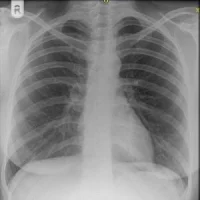A new study from Mount Sinai School of Medicine shows that implementation of electronic health records (EHR) at a large tertiary hospital resulted in significant reductions in central line-associated bloodstream infections (CLABSI) and surgical intensive care unit (SICU) mortality rates. The findings are published in CHEST Journal.
Health information technology, and specifically the EHR, is increasingly viewed as a means to provide more coordinated, patient-centred care. However, few studies consider the impact of EHRs on quality of care in the intensive care unit (ICU) setting.
Roopa Kohli-Seth, MD, Mount Sinai School of Medicine, New York, NY, and colleagues conducted a retrospective chart review to record quality indicators for patients admitted to the SICU between January 2009 and December 2013 (3,742 patients). Data was segregated between patients admitted to the SICU two years before (January 2009 to December 2010) and two years after (January 2012 to December 2013) EHR implementation. Data from the 12-month period of transition to EHR was excluded (January 2011 to December 2011).
The investigators collected data on length of stay, mortality, CLABSI rates, Clostridium difficile (C. diff) colitis rates, readmission rates, and number of coded diagnoses. After EHR implementation, the rate of CLABSI per 1,000 catheter days was 85 percent lower, and overall SICU mortality was 28 percent lower. EHR implementation also resulted in a significant increase in the average number of coded diagnoses from 17.8 to 20.8.
However, the results showed no significant impact on length of stay, C. difficile colitis rates, or readmission rates after adoption of the EHR system.
"After EHR implementation, there was no significant difference in multiple key quality of care indicators in the SICU. There were significant reductions in CLABSI rates and SICU mortality. Ongoing quality improvement endeavours may explain the changes in CLABSI and mortality, but these trends invite further study of the possible impact of EHRs on quality of care in the ICU," the authors conclude.
Mark J. Rosen, MD, Master FCCP, CHEST Medical Director, said."Considering the large investment into EHRs and the high cost associated with ICU care, it's important to develop EHRs that improve ICU quality of care." Dr. Rosen is not part of the research team that conducted the study.
Further results will be shared during CHEST Annual Meeting 2015, held 24-28 October in Montréal, Canada.
Source: American College of Chest Physicians
Image credit: Flickr.com
Health information technology, and specifically the EHR, is increasingly viewed as a means to provide more coordinated, patient-centred care. However, few studies consider the impact of EHRs on quality of care in the intensive care unit (ICU) setting.
Roopa Kohli-Seth, MD, Mount Sinai School of Medicine, New York, NY, and colleagues conducted a retrospective chart review to record quality indicators for patients admitted to the SICU between January 2009 and December 2013 (3,742 patients). Data was segregated between patients admitted to the SICU two years before (January 2009 to December 2010) and two years after (January 2012 to December 2013) EHR implementation. Data from the 12-month period of transition to EHR was excluded (January 2011 to December 2011).
The investigators collected data on length of stay, mortality, CLABSI rates, Clostridium difficile (C. diff) colitis rates, readmission rates, and number of coded diagnoses. After EHR implementation, the rate of CLABSI per 1,000 catheter days was 85 percent lower, and overall SICU mortality was 28 percent lower. EHR implementation also resulted in a significant increase in the average number of coded diagnoses from 17.8 to 20.8.
However, the results showed no significant impact on length of stay, C. difficile colitis rates, or readmission rates after adoption of the EHR system.
"After EHR implementation, there was no significant difference in multiple key quality of care indicators in the SICU. There were significant reductions in CLABSI rates and SICU mortality. Ongoing quality improvement endeavours may explain the changes in CLABSI and mortality, but these trends invite further study of the possible impact of EHRs on quality of care in the ICU," the authors conclude.
Mark J. Rosen, MD, Master FCCP, CHEST Medical Director, said."Considering the large investment into EHRs and the high cost associated with ICU care, it's important to develop EHRs that improve ICU quality of care." Dr. Rosen is not part of the research team that conducted the study.
Further results will be shared during CHEST Annual Meeting 2015, held 24-28 October in Montréal, Canada.
Source: American College of Chest Physicians
Image credit: Flickr.com
References:
Kohli-Seth R et al. (2015) Trends in ICU Quality After Implementation of an Electronic Health Record. Chest. October
2015;148(4_MeetingAbstracts):477A. doi: 10.1378/chest.2251945
Latest Articles
healthmanagement, CLABSI, clostridium difficile, EHR, electronic health records, intensive care unit
A new study from Mount Sinai School of Medicine shows that implementation of electronic health records (EHR) at a large tertiary hospital resulted in significant reductions in central line-associated bloodstream infections (CLABSI) and surgical intensive










